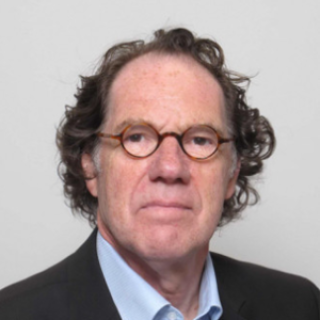During a conference in the Peace Palace on the 31st of May, the International Centre for Counter-Terrorism (ICCT) – The Hague was officially opened by Dutch Minister for Foreign Affairs Mr. Maxime Verhagen, in the presence of approximately 200 distinguished guests.
The centre is a result of an initiative originating in the Dutch parliament (motion Çörüz, April 2008) and will, in its nascent years, receive financial support from the Ministry of Foreign Affairs. ICCT is founded by the collective efforts of three, Hague based, authoritative institutions active in the fields of international law, relations and security, namely the T.M.C. Asser Instituut, the Institute for International Relations ‘Clingendael’ and the Centre for Terrorism and Counterterrorism of Campus The Hague / Leiden University.
Speakers
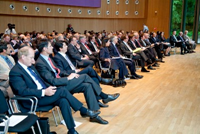
Following a word of welcome by Ms. Ann O’Brien on behalf of the ICCT Board of Governance and an opening statement by ICCT director Peter Knoope, four prominent speakers discussed the value of the new centre in light of their own organisations and experiences.
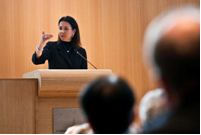
Ms. Michèle Coninsx, vice-president of EUROJUST and chair of its Counter-Terrorism Team, delivered a speech on the often complex relationship between counter-terrorism and human rights. As Deputy Prosecutor in the Brussels Public Prosecutors Office (1990-1997), she gained extensive practical experience in the prosecution and trial of major criminal cases, including terrorism and organised crime. Her statement touched upon various areas of tension between counter-terrorism and human rights, but concluded that they had to go hand in hand in order to create more legitimate and efficient government policy and a more just and safe society. A closer monitoring and comparison of terrorism court cases, both nationally and internationally and with special regard to the adherence to human rights, may prove to be a valuable research activity for ICCT.
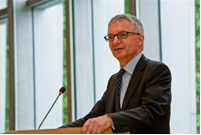
The second speaker, Mr. Richard Barrett, is Coordinator of the UN Al-Qaida and Taliban Monitoring Team and member of the United Nations Counter-Terrorism Implementation Task Force. He stated that the challenge for the global community is now to understand better why members of our own communities decide that the only way to express their views, and to make a difference to the world, is through violence. He anticipates that ICCT can contribute significantly to this challenge, as well as to other important issues such as the examination of national and regional counter-terrorism policies to judge their impact and effectiveness. As the emphasis shifts towards preventing terrorism, while ensuring that the law is properly applied in repressing it, he believes there is a huge need for independent analysis and thinking about the best way forward. Hence, he foresees great opportunities for ICCT to assist and strengthen the work of the UN and its member states in the area of counter-terrorism.
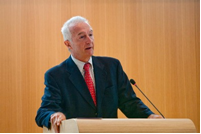
The remarks made by Mr. Gilles de Kerchove, EU Counter-Terrorism Coordinator, focused on the EU Counter-terrorism strategy in relation to the ICCT’s thematic focus and future activities. He stressed that a lot of work that is being performed by EU Member States and the Council in such fields as social responsibility, social resilience, integration and development aid is in fact counter-terrorism relevant, without being labelled as such. It is therefore important that a comprehensive view is taken when approaching the issue of counter-terrorism. He felt that ICCT could make a real contribution to counter-terrorism when focussing on such issues as the role of international humanitarian law and human rights law in armed conflicts involving non-state actors, the treatment of terrorist prisoners, the usage of western policy and its (perceived) consequences as propaganda and the perception of injustice as a factor contributing to the spread of violent extremism.
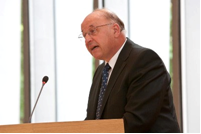
The last speaker, Prof. Michael Buback, told a very personal story from the perspective of a secondary victim of terrorism. He is the son of Siegfried Buback, Public Prosecutor General of the Federal Court of Justice in Germany, who was killed by terrorists from the Rote Armee Fraktion in 1977. Recently, new evidence emerged in this case; evidence that was so strong that it led the German police to reopen the case after thirty years. Prof. Buback emphasises the importance of systematically analysing each and every terrorist crime, in order to fully understand and be able to counter terrorism. Through careful examination of terrorist cases and the adherence to legal procedures and human rights, he anticipates that ICCT can make a valuable contribute to the search for justice of secondary victims.
Dutch Minister for Foreign Affairs Mr. Maxime Verhagen concluded the ceremony by officially opening ICCT. He stated that, in order to meet the challenge of terrorism, a truly international approach is needed, based on a clear legal foundation and solid cooperation; the opening of the centre marks the next stage in The Netherlands’ continuing commitment to this aim. He fully agreed with British terrorism expert Paul Wilkinson’s observation that ‘fighting terrorism is like being a goalkeeper. You can make a hundred brilliant saves, but the only shot that people remember is the one that gets past you.’ Minister Verhagen invited ICCT to assist the goalkeepers of this world and help them to make brilliant saves, so they can stay on top of the game.
See the press release here.
